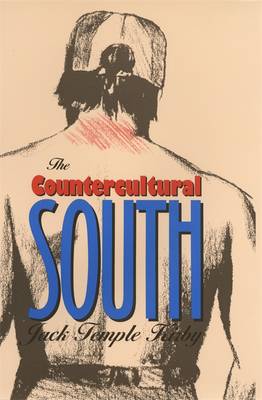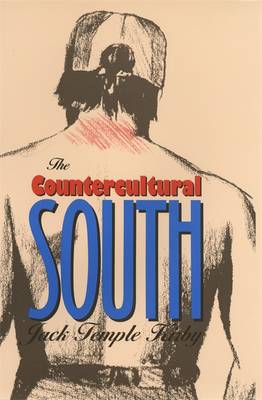
- Retrait gratuit dans votre magasin Club
- 7.000.000 titres dans notre catalogue
- Payer en toute sécurité
- Toujours un magasin près de chez vous
- Retrait gratuit dans votre magasin Club
- 7.000.0000 titres dans notre catalogue
- Payer en toute sécurité
- Toujours un magasin près de chez vous
Description
At once upholding and refuting the South's conservative image, The Countercultural South explores the politically divergent cultures of resistance created by poor white and working-class black southern men. With humor and insight, Jack Temple Kirby traces these racially and politically opposed cultures back to the antebellum encounter between the anti-capitalistic South and the capitalist individualism identified with the North.
In a wide-ranging discussion encompassing the blues, sharecropping, and contemporary black intellectuals, Kirby shows how the needful practice of black labor bargaining in the South resulted in a progressive black tradition of verbal negotiation. The conservative separatism and retro-resistance of rural whites, Kirby argues, is embedded in an inherited and adversarial frontier ethos valuing self-sufficiency and access to wilderness. With the southern landscape imaginatively as well as factually linked to social class, crime--particularly forest arson--becomes the most important form of southern white countercultural expression. Kirby continues his look at white resistance in a review of "redneck" discourse, examining the public reputation of southern whites through a range of cultural phenomena, from literature to country music to the computer network known as BUBBA-L. Original, personal, and artfully written, The Countercultural South offers fresh reflections on southern exceptionalism in American political life and culture.Spécifications
Parties prenantes
- Auteur(s) :
- Editeur:
Contenu
- Nombre de pages :
- 128
- Langue:
- Anglais
- Collection :
- Tome:
- n° 38
Caractéristiques
- EAN:
- 9780820317236
- Date de parution :
- 01-10-95
- Format:
- Livre relié
- Format numérique:
- Genaaid
- Dimensions :
- 148 mm x 237 mm
- Poids :
- 376 g

Les avis
Nous publions uniquement les avis qui respectent les conditions requises. Consultez nos conditions pour les avis.






